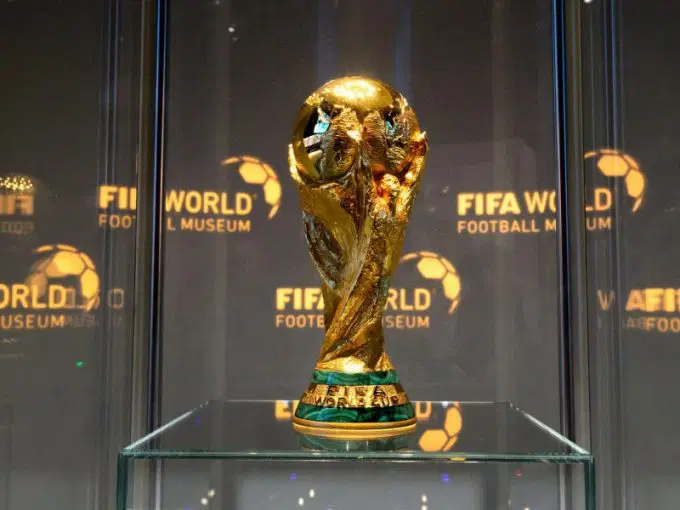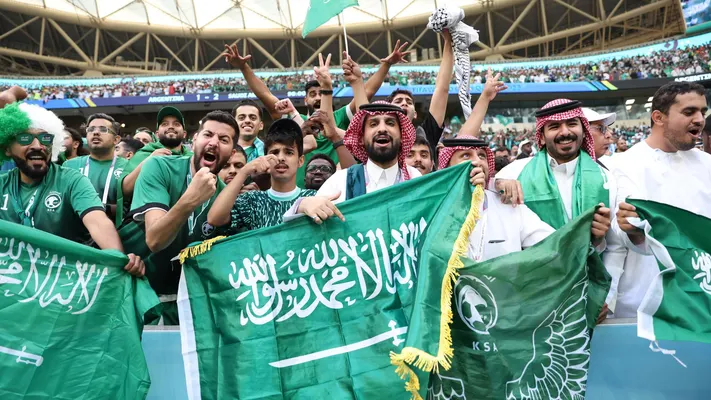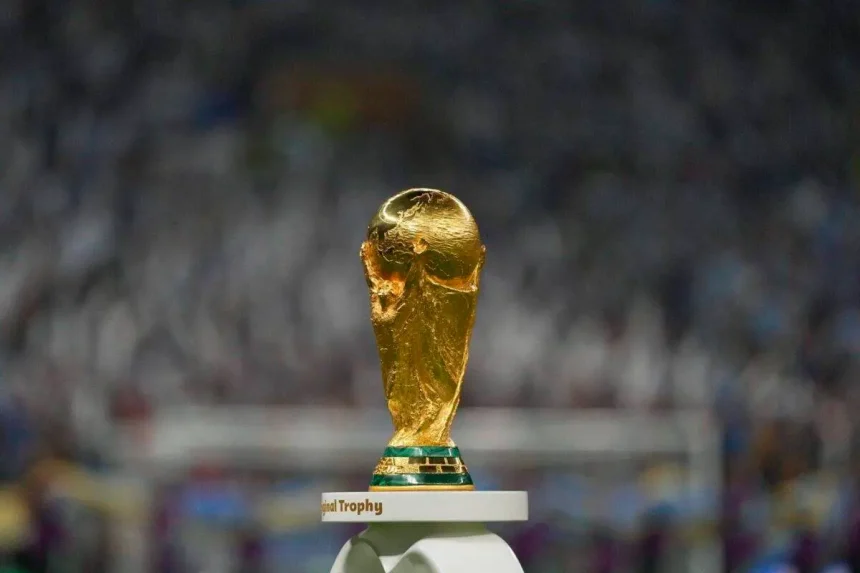FIFA’s evaluation report on Saudi Arabia’s bid to host the 2034 FIFA World Cup, released on November 30, categorizes the bid as a “medium risk” in terms of human rights.
The report, issued ahead of the FIFA Congress vote on December 11 to finalize the hosts for the 2030 and 2034 tournaments, underscores that while Saudi Arabia presents a robust proposal, implementing necessary reforms in human rights will require substantial time and effort.
Saudi Arabia remains the sole candidate for the 2034 World Cup, while a joint bid by Morocco, Spain, and Portugal is leading for the 2030 tournament. Additionally, Uruguay, Argentina, and Paraguay are slated to host individual matches as part of the centenary celebrations of the World Cup’s inception.

FIFA’s technical evaluation praised Saudi Arabia’s bid, stating it offers “a very strong all-round proposition.” This assessment is based on the Kingdom’s proposed infrastructure for the event, encompassing both sporting facilities and broader logistical capabilities, along with its immense commercial potential.
Saudi Arabia’s bid scored an average of 4.2 out of 5, surpassing the score achieved by the United States, Canada, and Mexico for their successful 2026 World Cup bid.
READ ALSO: Man Utd Target €35M Move for Lecce’s Patrick Dorgu Amid Interest from Chelsea & Spurs
However, FIFA expressed caution regarding human rights challenges tied to the bid. The report highlighted that implementing the required measures, particularly in areas requiring significant systemic changes, could demand substantial effort and time.
“The elevated risk rating reflects these complexities,” FIFA noted, adding that the tournament holds the potential to positively influence ongoing reforms and foster broader improvements in human rights within Saudi Arabia and the surrounding region.

Saudi Arabia’s human rights record has long been a point of contention. Concerns include mass executions, allegations of torture, and systemic restrictions on women, particularly under the male guardianship system.
Freedom of expression is also severely curtailed, with harsh penalties, including long prison sentences, imposed on individuals critical of the government on social media platforms.
READ ALSO: Zelensky: Bringing NATO Protections to Unoccupied Ukraine Could End the War
Rights groups have raised alarms, warning that the 2034 tournament could follow a path similar to the 2022 FIFA World Cup in neighboring Qatar, where human rights issues—particularly regarding migrant workers—were a source of global controversy.
Critics argue that Saudi Arabia’s efforts to host high-profile events, including the Formula One Grand Prix and the WTA Tennis Finals, represent “sportswashing,” a strategy to improve its international reputation and distract from domestic human rights issues.

Despite these criticisms, FIFA acknowledged the potential for the tournament to act as a “catalyst” for positive change. Hosting the World Cup could encourage reforms and contribute to improved human rights outcomes that extend beyond the scope of the event itself.
The report also noted that Saudi Arabia would need to construct several proposed stadiums to meet the demands of hosting a tournament of this scale. Like the 2022 World Cup in Qatar, the 2034 edition may need to be scheduled in winter to avoid the region’s extreme summer heat.
READ ALSO: Bitstamp Adds Solana (SOL) and Pepe (PEPE) Trading for U.S. Customers
The Kingdom has invested heavily in infrastructure and international events as part of its Vision 2030 initiative, aimed at diversifying its economy and enhancing its global profile. Hosting the World Cup would represent a significant milestone in these efforts.
Saudi Arabia’s ambition to host the World Cup aligns with a broader trend of Arab nations hosting major international sporting events.

Qatar successfully hosted the 2022 FIFA World Cup, becoming the first Arab country to do so. Other recent sporting events in the region and Asia include the 2002 FIFA World Cup, co-hosted by Japan and South Korea.
As FIFA prepares to make its final decision, the balance between sporting excellence, commercial opportunity, and human rights considerations will be closely scrutinized. The debate surrounding Saudi Arabia’s bid underscores the complexities of awarding such prestigious events in a world where sports and politics are deeply intertwined.
AFP

